29 Sep Suckling piglets with diarrhea? Phyto-active ingredients may be what you are looking for!
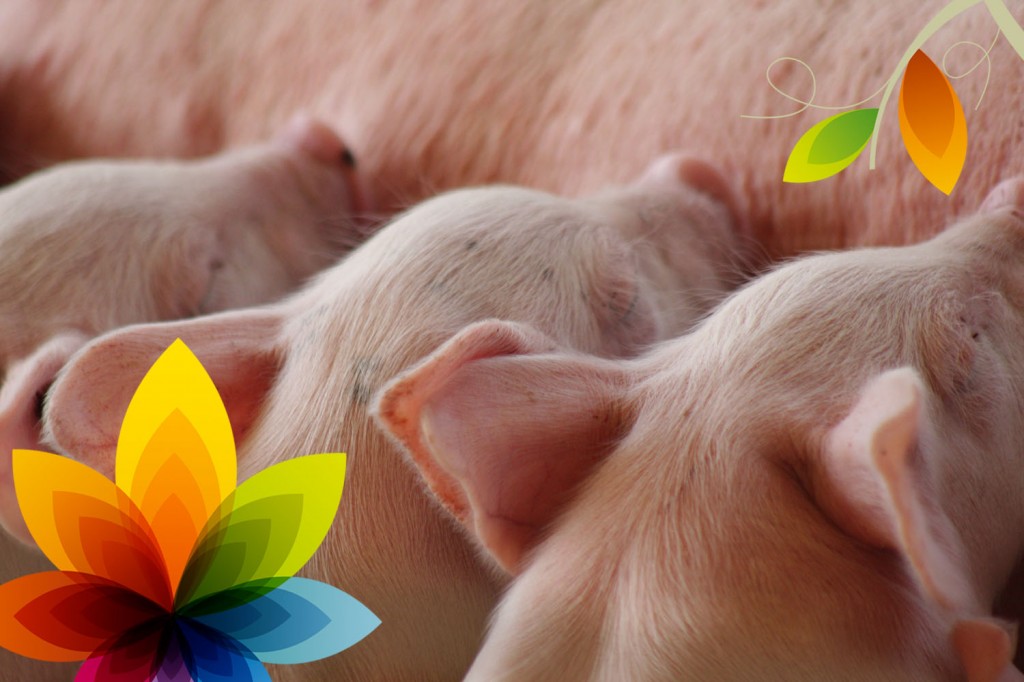
DIGESTIVE PROBLEMS IN SUCKLING PIGS
Scours are responsible for economic losses in pig. Average mortality by digestive problems during pre-weaning period is around 13% (Reference of Swine Health, Productivity, and General Management in the United States, 2006) but diarrhea is associated also with other negative consequences, as we discussed in this blog before (link).
The most common causes of diarrhea vary depending on the age of the piglet, as shown in the table below:
Main causes of diarrhea according to piglet’s age

Source: Swine Disease Manual, College of Veterinary Medicine, Iowa State University
EVOLUTION OF INTESTINAL FLORA IN THE NEW BORN PIGLETS
Before the piglet is born, the digestive system is sterile. From the very moment of birth, microbial colonization begins and culminates a few days later, when the amount of microorganisms reaches 10E3-10E14/gram, depending on the region of the digestive system.
During the colonization period, gut flora is not stable and therefore if a sufficient amount of pathogenic microorganisms arrive to the digestive system, the beneficial flora cannot withstand the infection and the digestive disease begins.
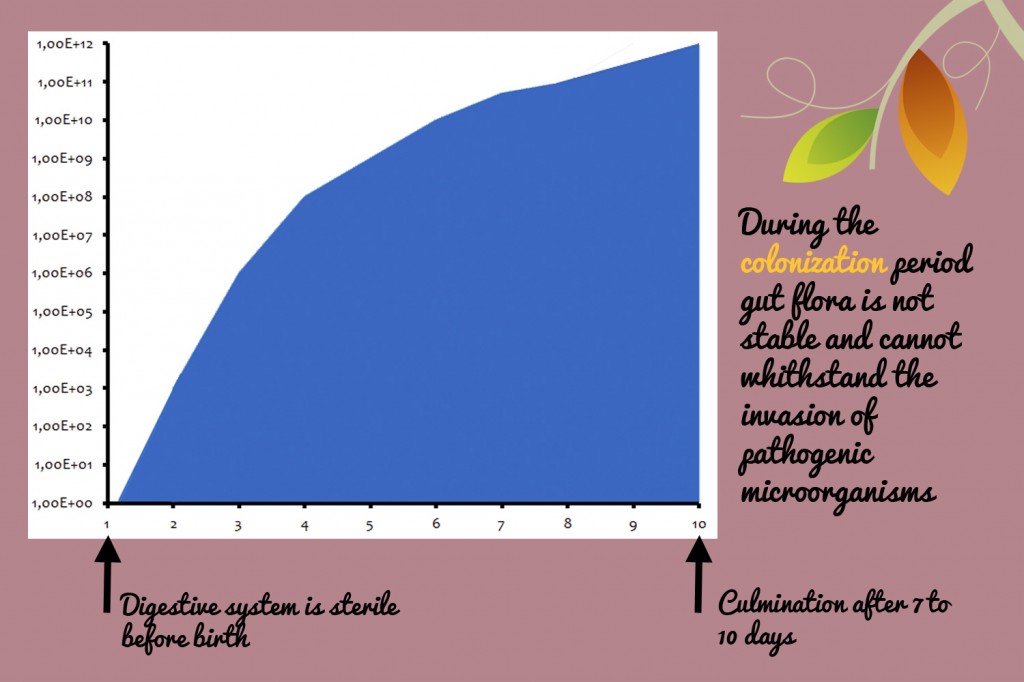
-
After 7-10 days, intestinal flora achieves a balance which consists in more than 90% of beneficial species (Lactobacillus, Enterococcus, Bifidobacterium) and less than 10% of potentially pathogenic microorganisms (Clostridium sp., Escherichia coli, Salmonella sp., etc). This balance can be disrupted due to:
- Presence of pathogens in the skin of the sow or in the environment.
- Factors related to the animal (underweight, immunodeficiency, insufficient intake of colostrum or milk, etc).
- Wrong management, especially cold environment.
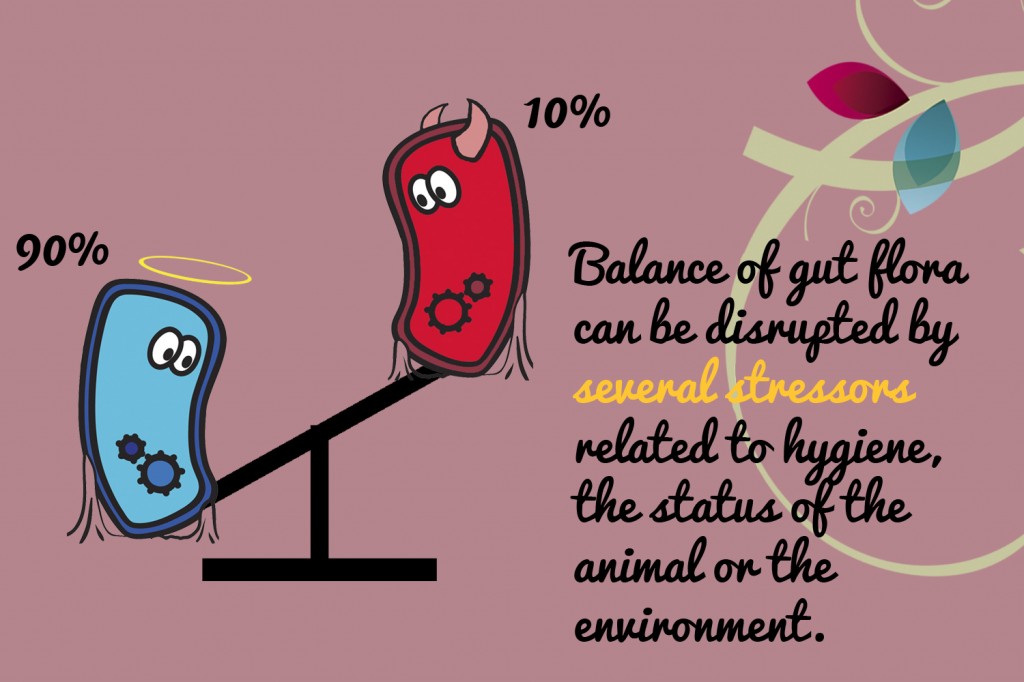
WHAT CAN PHYTO-ACTIVE INGREDIENTS DO?
In recent years, the use of phyto-active ingredients in suckling piglets has demonstrated to be able to:
1) Exert a direct microbiocide action
Plants such as cinnamon and marjoram possess direct microbiocide action and avoid the proliferation of pathogenic bacteria in the gut, during the colonization stage and during stress disruptors.
Phyto-active ingredients show some clear advantages over antibiotics: its spectrum of action is wider; they do not kill the beneficial bacteria in intestines; they have no side effects.
2) Promote the growth of beneficial bacteria, such as Lactobacillus sp. (prebiotic effect)
Some plants rich in oligosaccharides, such as chicory, are able to stimulate the growth of favorable bacteria. This is associated with an improvement of digestive and immune functions.
3) Secretion of digestive enzymes
Cinnamon is able to stimulate the production of digestive enzymes, leading to a better feed use and a significant increase in growth. This is especially useful in suckling pigs that are eating creep feed, because their digestive system is immature and they do not secrete enough enzymes.
4) Immune boosters
Phyto-active ingredients stimulate the immune system through different mechanisms, making the animals are more resistant to diseases. Prebiotic compounds, such as oligosaccharides from chicory, enhance local digestive immunity. Other plants, such as cinnanmon, are able to stimulate protective innate immunity.

CASES OF SUCCESS
Using phyto-active ingredients as general natural growth promoters
Real experiences in commercial farms with healthy piglets show that the administration of phyto-active ingredients from day one:
- Improves weight at weaning by more than 20%.
- Reduces the occurrence of diarrhea by more than 30%.
- Almost eliminates the need of antibiotics to treat scours.
- Cuts down mortality by more than 80%.
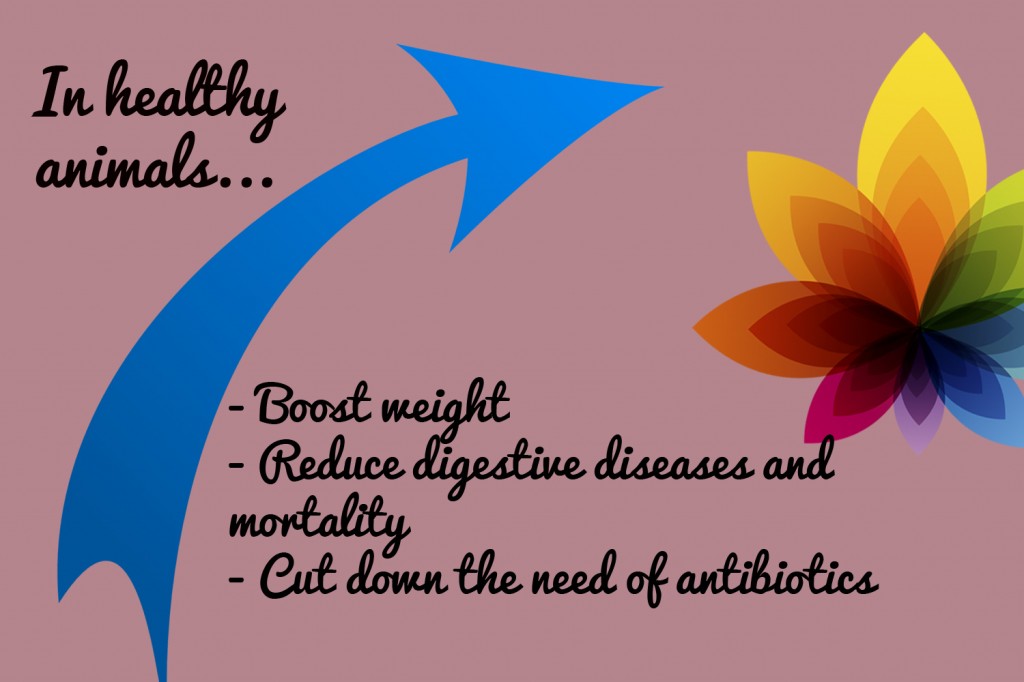
In the case of infections
During outbreaks of bacterial or viral diarrhea, phyto-active ingredients are useful to recover the healthy balance of gut flora,
- Exerting a microbiocide action on the main pathogen (bacteria, coccidia) or reducing the risk of secondary bacterial infections in the case of viral infections.
- Boosting the growth of beneficial flora.
- Making the animal more resistant to disease by boosting immunity.
Improvement of appearance of feces and in the productive parameters can be seen after only three days receiving phyto-ingredients.
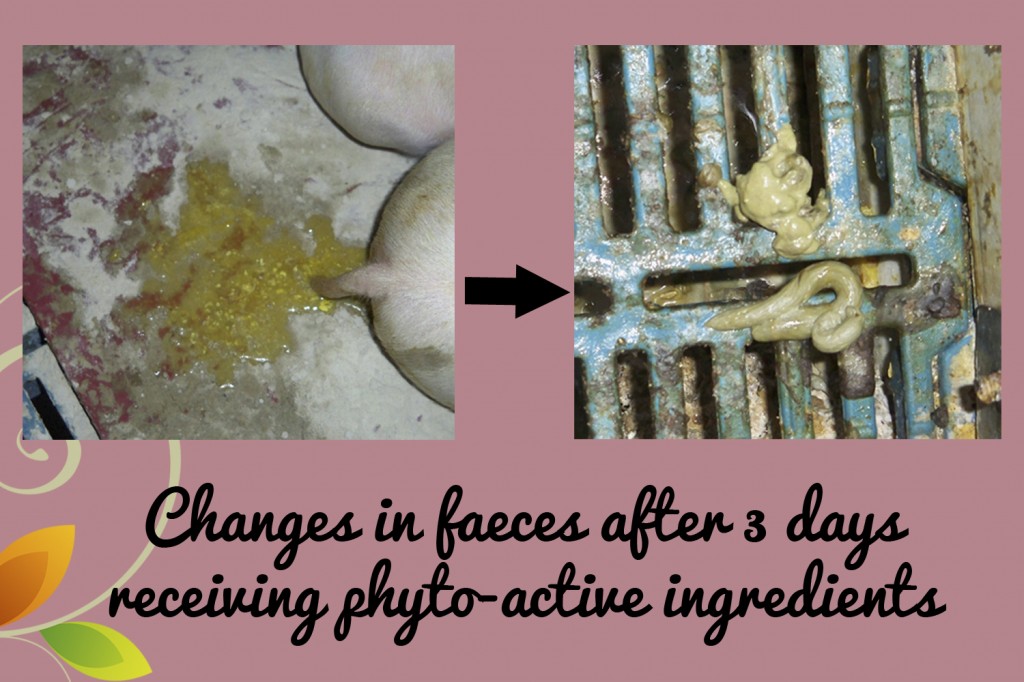
Product of choice
ActiPlus© is a liquid emulsion that contains:
- Essential oils with antioxidant, immunostimulant and microbiocide, which have a positive action on the digestive system.
- Plant extracts with prebiotic effect
- Electrolytes to maintain hydration
- Fast absorbing sugars as an energy source
- Vitamin E, essential for young mammals
It is intended for young mammals such as piglets, calves, lambs and kids during the lactation period, and is administered directly into the mouth of the animal.

